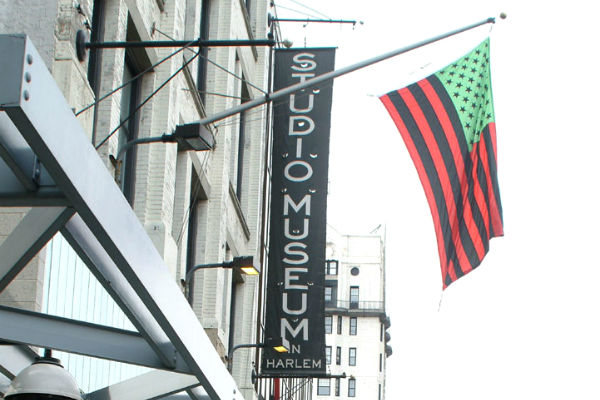 For the first time in half a century, starting March 1, 2019, non–New York residents from Harlem to Hollis will be required to pay $25 for daily admission to enter the Metropolitan Museum of Art reports CNTRaveler. The Met insists the move is a necessary last resort. But unfortunately, it means that the thousands who don’t have the means to pay the full fee may now be cut off to the arts. And sure, maybe a small charge is a fair price to pay to ensure centuries of creation are properly maintained for generations to come. But when a city like London manages to keep their (brilliant) institutes free of charge, all other big cities should be able to, too. Right?
For the first time in half a century, starting March 1, 2019, non–New York residents from Harlem to Hollis will be required to pay $25 for daily admission to enter the Metropolitan Museum of Art reports CNTRaveler. The Met insists the move is a necessary last resort. But unfortunately, it means that the thousands who don’t have the means to pay the full fee may now be cut off to the arts. And sure, maybe a small charge is a fair price to pay to ensure centuries of creation are properly maintained for generations to come. But when a city like London manages to keep their (brilliant) institutes free of charge, all other big cities should be able to, too. Right?
Art For All
“When I first moved to New York and was broke—like ramen noodles for breakfast, lunch and dinner broke—I’d often head to the Met. Thanks to its pay-what-you-wish policy, I could throw a couple of dollars down (or nothing at all) and spend an entire afternoon wandering around its grand rooms filled with ancient artifacts, coats of armor, centuries-old sculptures, and Picasso sketches. Sure, I can afford the admission fee now, but the idea that out-of-towners (or even just those from the next state over) will suddenly have to choose between visiting that marvelous old museum or doing something a little more wallet-friendly is a tragedy to me. Growing up in London, I took the city’s free museums—from the Tate to the National Gallery—for granted. Anyone can step inside them, on any given day. Culture, like the Internet or healthcare, shouldn’t be a privilege bestowed on those who earn the right salary or drop the right donations. It educates us, opens our eyes and, ultimately, makes us better humans.” —Lale Arikoglu
“It’s one of my favorite things about Washington, D.C.: how I can just museum-hop with abandon along the National Mall. I’ll spend a couple of hours pondering the lives of long-dead men and women at the Portrait Gallery, then, if I’m there on a Summer Friday, check out some jazz at the Sculpture Garden. And it’s extra special because it’s all free. And that opens opportunities, evident in all the children you see getting their little minds blown by dinosaur skeletons at the National Museum of Natural History. Knowledge and art, like air, should be free to all. So much is already so off-limits to so many, including expensive cross-continental travel. At the very least, everyone and anyone should be able to experience the world’s cultural treasures at home, without having to fork over a Jackson. Yes, the arts always needs more funding—but that’s about shifting the priorities of our legislators, not slapping on an entrance fee, like it’s a blockbuster movie rather than priceless knowledge.” —Sebastian Modak
“Imagine how much better our society would be if museums were free to everyone. Seriously, imagine it: people of all ages and walks of life having a free pass to the world’s revolving door of installations, exhibits, and thought-provoking commentaries. I only see the potential for positive change. I believe everyone who can give should give to the arts, but privilege shouldn’t be a prerequisite for access to museums.” —Megan Spurrell
Pay For It
“I understand this may be an unpopular opinion, but I’m a firm believer that if you can afford a $10 (or $15, or $20) museum admission, you should pay it. As the National Endowment for the Arts continues to get cut off at the knees, arts funding—from a variety of sources—is more important than ever. In higher-profile cities like New York, London, and Paris with a diverse set of patrons, public institutions may be able to get by on individual donations and thousands-a-plate fundraising dinners. But in smaller cities across the U.S., there’s a limited pool of people to call on for major gifts to help keep the arts alive—and they get hit up by repertory theaters, the opera, and the symphony, as well as museums. Yes, I understand the argument that museums could, and should, be treated like public libraries and be open to all. I’m not calling for prohibitive fees. Subsidize admission tickets for students; make museums free for entry a day a week, and keep them open late (like the Louvre does on Fridays) so more people can come. The rest of the time, ask visitors to show their appreciation for the beauty within the walls—or the music they hear, or the performances they see—with a couple bucks. ” —Laura Dannen Redman
“I don’t want income to determine who can and cannot access art and antiquities. Of course, in theory, I would want them to always be free. But the reality is that museums do not charge to make a profit; all admission fees go to salaries and maintaining the collection. I do, however, think that the fee should economically structured and subsidized if the museum determines that it must charge to keep its doors open. Twenty-five dollars is peanuts to pay for an afternoon admiring treasures including Bronze Era jewelry and Ming Dynasty porcelain to Rembrandt portraits. If the charge is, in fact, necessary, at least it’s a decent deal.” —Erin Florio
Become a Harlem Insider!
By submitting this form, you are consenting to receive marketing emails from: Harlem World Magazine, 2521 1/2 west 42nd street, Los Angeles, CA, 90008, https://www.harlemworldmagazine.com. You can revoke your consent to receive emails at any time by using the SafeUnsubscribe® link, found at the bottom of every email. Emails are serviced by Constant Contact








